China's Economic Reforms Have Outpaced Political Ones In The 25 Years Since Tiananmen Square
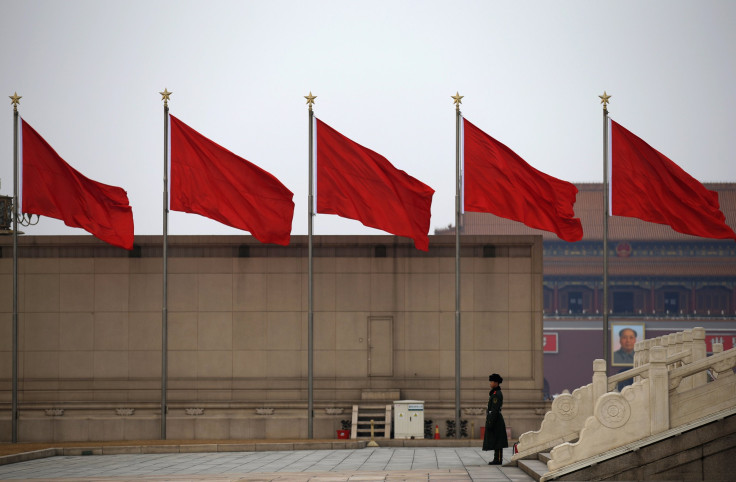
Twenty-five years after the Chinese Communist Party crushed a grassroots democracy movement and killed uncounted numbers of dissidents, the nation’s top leaders have largely succeeded in keeping the nation’s economy growing while maintaining a hammerlock on political authority and control.
By the time of the 1989 massacre in Beijing, Deng Xiaoping had already introduced economic reforms designed not only to enrich the country but also to quell civilian dissent. Many observers suggested at the time, and continue to say to this day, that Deng’s moves were amplified by government concern about communism’s failure in the former Soviet Union.
Deng, who introduced the reforms that have led to China’s quarter century of economic growth, famously once said, “Poverty is not socialism. To be rich is glorious.”
And glory China found, at least economically. By the 1990s, just a year after the Tiananmen massacre, China’s economy began to grow by about 10 percent per year.
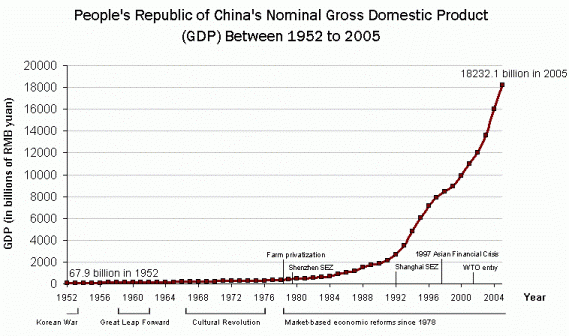
While the nation faced a number of social disruptions and internal political battles, its economy managed to maintain 10 percent plus growth for some time, and it has only been since the global financial crisis that growth has slowed. It’s expected to come in at about 7.5 percent this year.
Highlighting the ongoing split between economic opportunity and political freedom in China 25 years after Tiananmen, China is believed to have imposed a partial crackdown on certain Google services ahead of the anniversary of the protests.
Arthur Brooks, the president of the American Enterprise Group and a former professor at Syracuse University, said on the Institute’s website that, “whether or not China’s human rights violations undermine its GDP, they are tragic in and of themselves. That a billion Chinese people today have economic opportunities unthinkable a generation ago is an incredible blessing. But without an equal expansion of individual liberty, that miracle will remain profoundly incomplete.”
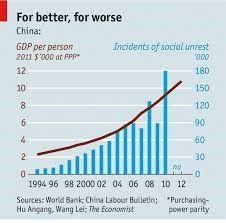
Foreign Policy magazine published the following trio of charts looking at China’s stunning growth since the implementation of Deng’s economic reforms:
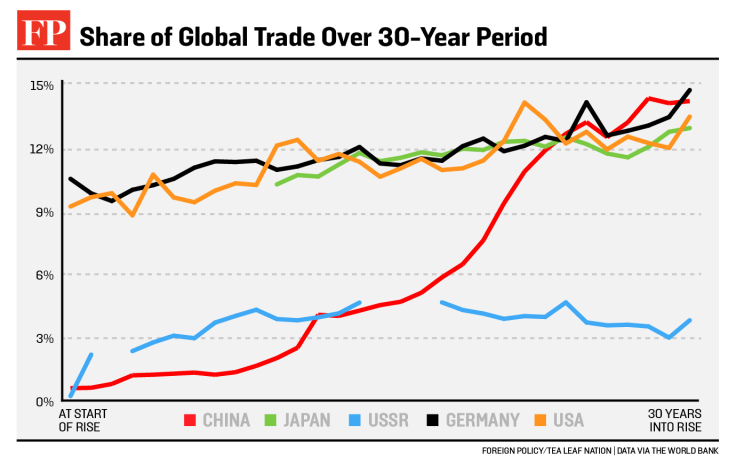
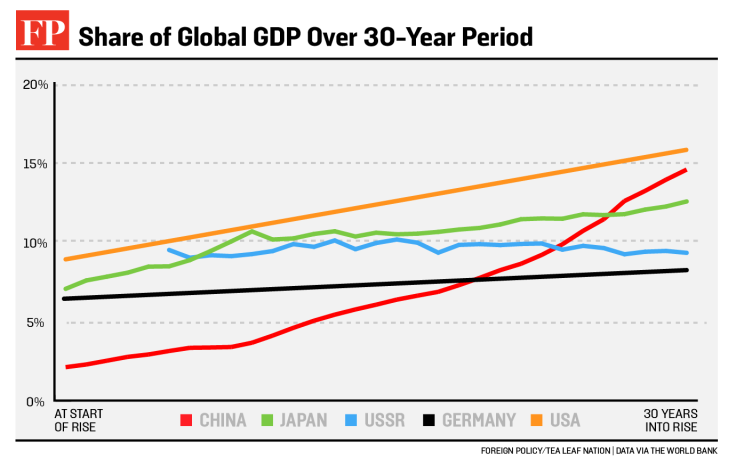
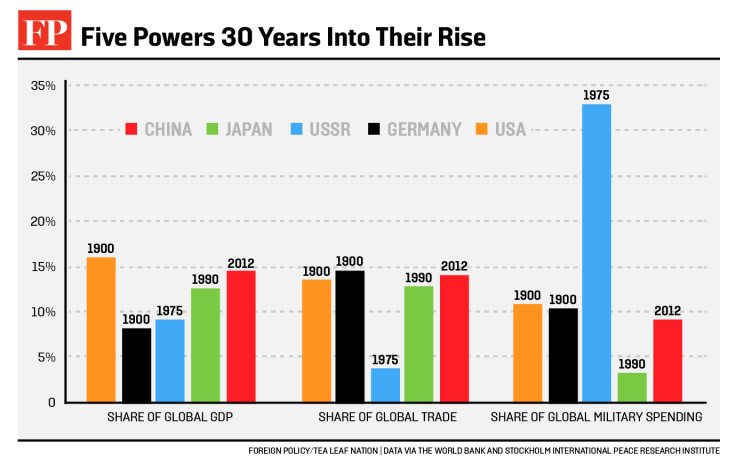
© Copyright IBTimes 2025. All rights reserved.






















